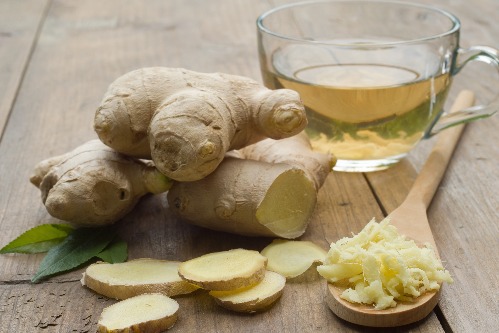Ginger: Ginger can help in two ways — as an anti-inflammatory and as an anti-nausea medication. Fresh ginger appears to work the best; you can try to smell freshly crushed ginger for nausea, or steep some in hot water for a tea (15 min).
Caffeine: Caffeine can both worsen and improve a headache, so use this remedy wisely. Caffeine-rebound headaches are common sources of migraines, but a cup of tea or coffee may help relieve a migraine. Green tea is also an excellent option.
Magnesium: According to a study by the University of Maryland, people with migraines often have lower levels of magnesium than those who don’t have migraines. Studies suggest that magnesium may reduce frequency by more than 40 percent, compared with 15 percent in those who took a placebo. Other studies suggest magnesium may be particularly helpful for women with menstrual migraines. Starting doses can be 200 to 600 milligrams per day.
Riboflavin (Vitamin B2): Some studies show that this vitamin may also be helpful in reducing the frequency of migraines at a dose of 400 milligrams a day. Note that riboflavin can interfere with some medications such as antidepressants, anti-seizure drugs and medications for gout.
Exercise: Researchers found that aerobic exercise was as effective at preventing migraines as the preventive migraine medication topiramate. In a 2011 randomized, controlled study from the University of Gothenburg in Sweden, some patients in the three-month study exercised on a stationary bike three times per week for 40 minutes, while others took topiramate. The exercisers and drug group were equally effective in reducing migraines, but 33 percent of topiramate users also experienced adverse side effects of the medication.
5-hydroxytryptophan (5-HTP): Research by the Harvard Medical School and the Natural standard suggests that 5-HTP may be particularly effective in reducing both the severity and frequency of migraine headaches. This is thought to work as 5-HTP increases the body’s production of serotonin, and low serotonin levels have been associated with migraines. Supplementation is at 200 to 600 milligrams a day on 5-HTP for migraine prevention.
Coenzyme Q10: This antioxidant may help prevent migraines. Studies, including a double-blind, randomized trial showed that more than 60 percent of patients who took 150 milligrams of CoQ10 daily experienced a 50 percent or better reduction in the number of days with migraines.



